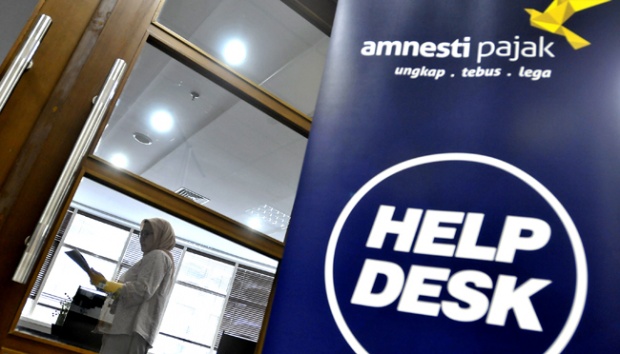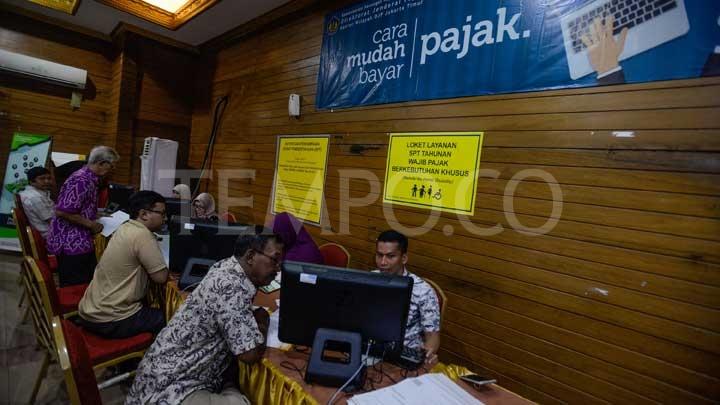
TEMPO.CO, Jakarta - From the start, the concept of a tax amnesty raised many doubts. Wrongly executed, it could even end up in total failure. Among the various misgivings over the program is the lack of reliable data on tax payers. But in what appeared to be a hasty move, the government pressed ahead with the draft law needed as a legal basis to implement the initiative.
Now that the law has been put into effect, the government has no choice but to focus on achieving its targets: bringing home money or assets stashed offshore and subsequently covering up budget deficits. As fund owners are given the option whether to participate in the program or not, chances of achieving the targets are quite remote.
If the government insists on accomplishing its mission through the program, it will have to consider expanding its banking facilities. Appointing only a small number of financial institutions to collect the repatriated funds will not only undermine the program, but it can also cause serious banking issues.
Massive amounts of money will likely be sitting idly in small local banks. They should not be left alone to manage the program. If the tax amnesty is also applicable to these funds, meanwhile the government has only seven banks to collect the funds, a rush to withdraw the money can jeopardize the sustainability of the banks.
Given such potential risks, the government should determine whether to hurry up with recouping the tax funds or to first foster and protect local banks from the flood of funds. For sure, it cannot undertake the two options concurrently. The government's decision to restrict the fund collection to only seven designated major banks could only mean that it has chosen the second option. Consequently, the funds repatriated may not be as optimal as expected.
Admittedly, the first option would instantly convey a negative impression, given that local banks with their limited capacity would be hopelessly overwhelmed by having to compete against foreign banks. Considering funds worth a whopping 500 or so trillion rupiah expected to come in, they may lack attractive asset management packages, if they have any at all. The capacity of local banks to offer global access is also not on par with that of foreign banks.
On the other hand, if the government opts to offer the same opportunity to small local banks, it will undoubtedly create positive side effects. Local banks, both large and small, will have the opportunity to restructure their organizational management to increase their capacity, such as improve asset management programs or acquire better global access. They can even be pushed to boost efficiency through lower interest rates.
With limited options and likely negative consequences, the government may not have the luxury to guarantee a successful amnesty program, but it should be able to establish clear strategic measures that will bring about long-term benefits. (*)
Read the full story in this week's edition of Tempo English Magazine























